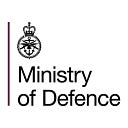COVID Doctor, Reservist, PhD Student
Compelled towards the Army by a sense of adventure, Medical Officer and Major Malik has never looked back. Read about her adventures in her own words.
Fighting the pandemic
In the middle of a PhD when coronavirus struck, Major Malik dove back into full-time NHS work. Working in emergency surgical services and Intensive Care, she joined the frontline against the pandemic. She says her military training helped her in a challenging and fast-paced environment, helped by a strong sense of team work and support from peers.
When asked what the most difficult part was, she says:
Sadly, many of the patients didn’t make it through but in those people who recovered, it was highly rewarding to watch them leave hospital! The hardest part was seeing patients go through hardship without members of their families around, there was a ban on hospital visiting due to the risk of virus transmission, but us doctors and nurses did what we could to encourage our patients.
We also had a medical student go around with an iPad so that patients who were well enough to speak to their families were able to do so!
Humanitarian work in Kenya
So far, Major Malik has completed two exercises in rural Kenya, giving vaccines to children under 5 and providing treatment to people who travelled for hours for medical help. Having spent some of her childhood in Kenya, Major Malik was able to use her skills: speaking Swahili, and being able to identify poisonous snakes when patients were brought in.
She says:
The kids were always so cheerful, and it just reminds you that there is more that unites human beings and makes us similar to each other, even though the conditions they live in are so different to what we’re used to.
Having been in the Armed Forces for so many years it’s also nice to be part of a bigger mission and the values that we have that, if we can help people, we will.
A PhD on major injuries
Her PhD focuses on improving outcomes for victims of major injuries, using her military skills, she says:
This project draws on military concepts of triage and involves working with civilian and military colleagues.
I have also done some work recently on trying to quantify the burden of knife crime on our hospital in Birmingham and looking at how healthcare and injury prevention bodies can help to achieve the best possible outcome for the vulnerable young people who suffer life-changing injuries.
Plans for Eid this year
Friday 31st July is Eid-ul-Adha, an annual festival for Muslims marking the last day of Hajj.
Major Malik says:
This Eid is a going to be quieter than usual as we try to limit our time spent with older loved ones to protect their health. Usually, Eid is about getting the family together around some good food and exchanging presents. The usual menu is Pilau rice, tandoori chicken and kebabs, which we will still eat! Just not together, all at once…
This Eid marks a year since I was deployed on Defence Engagement duties to Saudi Arabia, where we had the opportunity to perform the Hajj Pilgrimage. This was a very special trip and quite different from other military duties I have performed previously, done alongside the armies of several other nations with Muslim members of their Armed Forces. I suppose no two military trips are the same!
Read more about Muslims in the Armed Forces celebrating Eid during coronavirus here:
